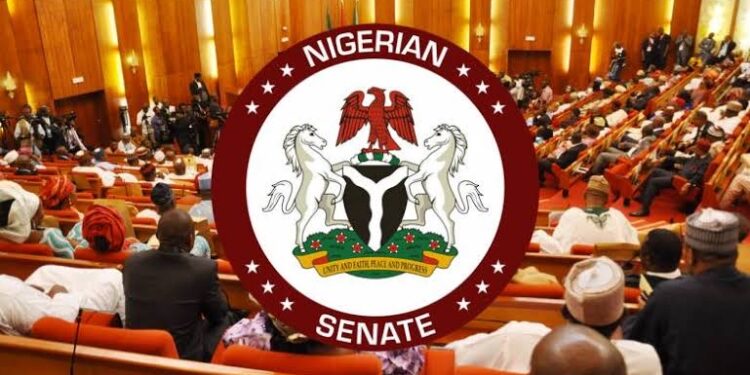Nigerian governments are generally bad at policy making, worse at policy communication, and terrible at policy implementation; the very things governments are created or elected to do. This much is on display right now with regards to the tax bills currently before the National Assembly. Consider, for a single example, the most contentious aspects of the new bills: the proposals on Value Added Tax (VAT), a tax on many goods and services consumed anywhere in Nigeria, whether they are produced inside or outside the country.
The current practices on VAT collection, filing/payment, and distribution are governed by the following arrangements. The federal government collects all the VAT due on eligible goods and services throughout the country on behalf of the states and local governments (LGs), mainly through the Federal Inland Revenue Service (FIRS) and the Nigeria Customs Service (NCS). Companies pay VAT to these agencies through their headquarters in predominantly three locations: Lagos, Port Harcourt and Abuja, even though the actual consumption transactions on which VAT was paid may have been in Aba or Zungeru.
All the VAT collected is then pooled and distributed according to this formula: 15% for the federal government, 50% for the 36 states and the FCT, and 35% for the 774 LGs. The total 85%, which accrues to these two tiers of governments is then further distributed as: 50% equality of states, 30% population size, and 20% derivation. These principles are among the same foundational bases of the Nigerian Federation and are applied variously in other areas like the creation and distribution of states and local governments, the allocation of seats in the National and state assemblies, the workings of the Federal Character Commission, the Federal Accounts Allocation Committee (FAAC), the Civil Service, JAMB admissions into federal universities, and even recruitment into the military.
Of course, in practice, these principles work better in some areas of our federal system than others. In the case of VAT, there is a lacuna in existing legislations (VAT Act 2007, Finance Act 2020, etc), which do not clearly define what “derivation” means in legal or administrative terms. But it could mean the point of VAT generation anywhere in the country, or the point of VAT filing and collection mostly in Lagos, Port Harcourt and Abuja, and a few other places. Perhaps because of administrative convenience, derivation as the point of VAT collection is applied in practice, which, in turn, puts many states at serious disadvantage. According to a recent report in Nairametrics, for example, the top ten states that received the highest VAT allocation for January to December 2023 included, in ascending order, Jigawa (N38.50 bn), Bauchi (N38.51 bn), Anambra (N39.19 bn), Katsina (N42.59 bn), Delta (N43.02 bn), Kaduna (N44.50bn), Kano (N60.21 bn), Oyo (N62.94 bn), Rivers (N87. 80 bn), and Lagos (N145.27 bn).
- Experts differ on impact of Tinubu’s tax reform on North
- Tax Reform Bill: Recipe for Disaster in Borno
This data has two implications, depending on which side of the debate you are on. First, it shows clearly that the current arrangement favours states that are either richer or larger in population, or both, more than states that are poorer or smaller in population, or both. Therefore, the Great Dichotomy in VAT distribution in Nigeria is not between northern and southern states, as most people assume, but between richer and more populous states versus poorer and smaller states by population, regardless of regional location. This is why FCT and Bayelsa State, normally in the top 10 VAT generators based on current derivation definition, still fall out of the top 10 in allocation for the whole of last year. Secondly, while five northern states are in the top 10 VAT earners, 14 northern states are not, creating a dichotomy, not between the north and south, but within the north itself. In other words, it is not even clear yet to what extent even the current arrangement benefits the North in the first place.
The new VAT proposals seek to change this situation, whereby the FG share is reduced from 15% to 10%; the states and FCT share is increased from 50% to 55%, while the LGs share of 35% is unchanged; that is, a total of 90% for the states and LGs, instead of the existing 85%. This slight increase will add a gross total of about N182 billion for states and LGs, from the total of over N3.6 trillion in VAT (29.5% of total tax) in 2023, according to FIRS data, Moreover, the new bills propose an increase in the derivation principle from the current 20% to 60% in the distribution of the states and LGs combined share of 90% VAT.
Will these new arrangements be damaging to the northern States? My honest and considered answer is that it depends on what the data will show. The new bills still do not clearly define what “derivation” means in a specific legal or administrative sense as applied to the VAT. Although some provisions vaguely require companies to file their taxes at the location of the transactions, a serious and complicated administrative challenge that will take years to get right even with the new technology. The bills also do not make clear what percentages of 90% share of states and LGs will be allocated on the basis of equality of states and population size principles.
Therefore, if the new “60% derivation” is to be applied as the point of VAT collection, as in the current practice, then we can assume that the top 10 states above will be getting significantly more than they already do, while the remaining states in the federation, including 14 northern states, will be worse off than they already are. No one knows what the outcome will be if 60% derivation is defined as the point of generation where the good or service is consumed and VAT generated. This brings me to my main interest in the matter, how to get the facts right and clear all the needless confusion. And in that, I have a piece of advice for the federal government on the one hand, and the Northern Governors Forum and the National Economic Council (NEC) on the other, and another for Nigerians.
So far, this is a policy debate without data, and therefore fuel to fire in a country where political and policy debates easily descend into a North-South dichotomy. Both the Presidential Committee on Fiscal Policy, which produced the bills, and the Northern Governors Forum, the bills’ leading opponent, went to town without data. But what is needed is for both parties to, as a matter of urgency, use the existing 2021, 2022, and 2023 VAT figures to simulate and project what the outcomes will look like with the new formulas in the proposed bills as compared to current practice.
This can easily be done with simple infographics and will show clearly the implications of the proposed formulas in the new bills for each state, region or zone. And hopefully, everyone will calm down. It will show which states are disadvantaged, which are over-advantaged and why. Above all, it will show where amendments are needed to the bills to make them more equitable and fairer to all. And for Nigerians, seek ye first the facts, and all else shall be added on to you. Once we have the facts of the new formula in black and white, we can all hopefully calm down and stop scapegoating people like Vice President Kashim Shettima (among Southern Nigerians) and Deputy Senate President Jibrin Barau (in the North) for merely doing their jobs at a difficult moment. Again, seek ye first the facts.

 Join Daily Trust WhatsApp Community For Quick Access To News and Happenings Around You.
Join Daily Trust WhatsApp Community For Quick Access To News and Happenings Around You.


